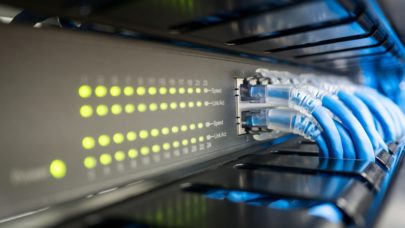May 17, 2023 — Lenovo today announced that it is working together with the Leibniz Supercomputing Centre (LRZ) to build Europe’s first High Performance Computer (HPC) prototype as part of an innovation partnership. Lenovo will be one of two companies selected to provide one or more prototypes for the exascale-ready system planned for the middle of this decade at the LRZ.

These are to be optimized for the needs of LRZ users from many different fields in science. Only after completion of these research and development activities and the subsequent evaluation will it become clear which of the two participating technology companies will build and maintain the next exascale generation supercomputer.
The planned supercomputer in Garching will be the first European HPC system to be built within the framework of an innovation partnership. This procurement procedure has been possible in Germany since 2016. Through the joint development of the hardware and software with a technology partner, the needs of the LRZ are to be addressed even more specifically than in the classic tendering procedure. The new computer will then be designed based on the results.
The supercomputer is being funded by the Federal Ministry of Education and Research (BMBF) and the State of Bavaria, which are contributing 125 million euros in equal parts as part of federal and state funding. Together with the High Performance Computing Centre in Stuttgart (HLRS) and the Juelich Supercomputing Centre (JSC), the Leibniz Supercomputing Centre forms the Gauss Centre for Supercomputing (GCS). All three locations are to be expanded into exascale centres over the next few years.
Kirk Skaugen, Executive Vice President Lenovo and President ISG, commented: “For Lenovo, the Leibniz Supercomputing Centre has long been an outstanding partner. Our innovation partnership for the planned exascale supercomputer provides us with a great opportunity to develop solutions that will make researchers’ work easier and accelerate their projects – while at the same time providing the best possible energy efficiency. We wish all parties a fair and successful partnership so that with the completion of this project, the LRZ will have an optimal exascale-ready system for its users.”
Prototypes for the Supercomputer
Within the framework of the innovation partnership, information technology will be further developed by building various prototypes and testing them for their application scenarios in the various research areas. The prototypes will be designed in such a way that they clearly show how the innovative technologies evaluated there will lead to an optimally balanced exascale-ready system (codenamed ExaMUC) in terms of computing power, communication performance, topology and I/O.
The prototype systems and their software components are being developed in close collaboration with the LRZ. Through this collaboration with both Lenovo and the competitor, the Leibniz Supercomputing Centre has the opportunity to evaluate the latest technologies at an early stage and to test the extent to which existing scientific applications and algorithms work on them. The framework conditions of the partnership are strictly regulated, so that no technical data may be published during the tender. The decision on who will receive the contract for the new exascale-ready supercomputer is expected to be made at the end of 2023.
Sustainability and Research
If Lenovo is successful, the Exascale system will be delivered from their first European in-house manufacturing factory in Üllö near Budapest, Hungary, which officially opened in June 2022. Server infrastructure, storage systems and high-end workstations for the European market are manufactured there. In terms of sustainability and to create value in Europe, Lenovo’s German and European HPC teams work together with their global experts. The past and the long-standing partnership with LRZ has also shown how essential collaboration is: the development of Lenovo’s Neptune liquid-based warm water-cooling system, which both partners have actively promoted since 2011 following the SuperMUC tender, is just one of the innovations that has emerged from the partnership. And the new exascale-ready supercomputer, with its cooling and operating concept, is also intended to underline LRZ’s pioneering role in supporting energy-efficient and sustainable cutting-edge research.
About the Leibniz Supercomputing Centre
The Leibniz Supercomputing Centre (LRZ) proudly stands at the forefront of its field as a world-class IT service and computing user facility serving Munich’s top universities as well as research institutions in Bavaria, Germany and Europe. As an institute of the Bavarian Academy of Sciences and Humanities, LRZ has provided a robust, holistic IT infrastructure for its users throughout the scientific community for nearly sixty years. It offers the complete range of resources, services, consulting and support¬–from email, web servers and Internet access to virtual machines, cloud solutions, data storage and the Munich Scientific Network (MWN). Home to SuperMUC-NG, LRZ is part of Germany’s Gauss Centre for Supercomputing (GCS) and serves as part of the nation’s backbone for the advanced research and discovery possible through high-performance computing (HPC).
Source: Lenovo

























































